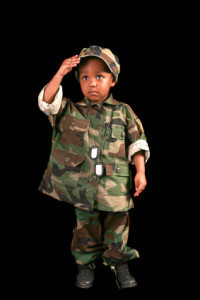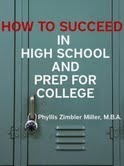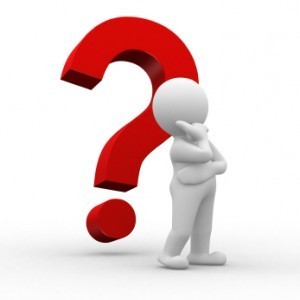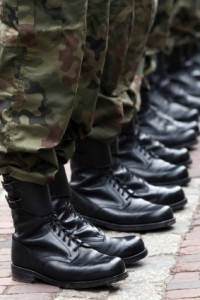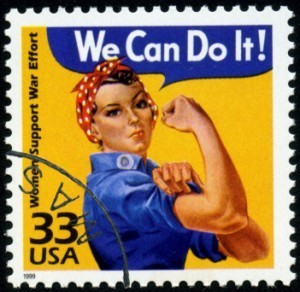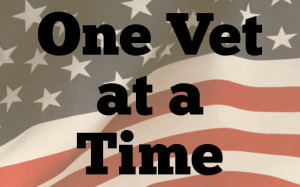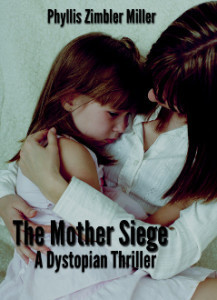Phyllis Zimbler Miller's Blog: Phyllis Zimbler Miller Author, page 16
March 29, 2015
Thanks to Our Troops on the Occasion of the Spring Freedom Holiday of Pesach
And this thought led me to being grateful for our U.S. military men and women who protect this freedom from attack by other nations. The reason our troops were uppermost in my mind?
As a fan of the TV drama series “Downton Abbey” I had just finished reading the two nonfiction books by the Countess of Carnarvon — LADY ALMINA AND THE REAL DOWNTON ABBEY: THE LOST LEGACY OF HIGHCLERE CASTLE and LADY CATHERINE, THE EARL, AND THE REAL DOWNTON ABBEY. Lady Almina’s time covers the First World War and Lady Catherine’s time covers the Second World War — the descriptions of the horrors of both wars are not spared by the author.
And, as I scrubbed my oven, I thought about what the world would be like today if Nazi Germany had won WWII. I wondered whether, even in the U.S. now, would there be Jews free to celebrate the holiday of Pesach.
As Pesach is a holiday that celebrates the Jews’ freedom from bondage in Egypt, it is definitely an appropriate time to give thanks to the active duty men and women protecting our freedoms in the U.S. It is equally important to say thanks to the veterans who have previously served.
P.S. If you would like to know about the holiday of Pesach, click here to read this chapter from my Jewish holiday book SEASONS FOR CELEBRATION.
© 2015 Miller Mosaic LLC
Phyllis Zimbler Miller (@ZimblerMiller) has an M.B.A. from The Wharton School and is the author of fiction and nonfiction books/ebooks, including HOW TO SUCCEED IN HIGH SCHOOL AND PREP FOR COLLEGE and the romantic suspense spy thriller CIA FALL GUY, as well as newly written books not yet published. She can be reached at pzmiller@gmail.com
March 17, 2015
8th Graders: Think Ahead to High School
And this is where my book HOW TO SUCCEED IN HIGH SCHOOL AND PREP FOR COLLEGE comes in — it is a guide to helping students and their mentors plan for the upcoming years.
Here is the beginning of chapter 1 of the book:
CHAPTER I: TAKING YOUR OWN PATH
Let’s answer some relevant questions right now before we explore the most important theme in this whole book.
OPTIONS AND CONTROL
Are you only reading this book because an adult insisted?
I know, I know. You are drowning in homework, learning a new vocabulary word every day for those far-off college admission standardized tests, playing goalie on your high school soccer team, still taking those piano lessons your parents insisted on way back in first grade, etc., etc., etc.
Do you really have to think about preparing for the rest of your life now? Because, honestly, even the thought of applying to college makes you nervous and, thank heavens, it is three years away. And your career path? Light years away!
Let me tell you why it is worth the time and effort to read this NOW:
To help ensure you have options in your future life — whatever path you may take.
To help give you some measure of control over your own path.
And, no, these two are not the same.
The first reason enables you to be exposed to different experiences than you might otherwise have undertaken plus learn some important life skills that will stand you in good stead in life.
The second reason will enable you to feel you have some control over the whole process rather than feeling a martyr to this trial-by-fire rite of passage.
What if you are reading this book even though your family wants you not to go away to college?
If your family is not supportive of your desire to go to college, or if your family is supportive but does not know how to help you, you must seek out people who can help you apply to colleges, help you apply for scholarships, and, perhaps most importantly, help convince your family that this path is right and best for you.
For example, you may want to go to college away from home while your family wants you to attend local college. Or you may encounter family discouragement if you want to drop out of college to follow a dream. In both these cases you will need to find people to help support your decision and to give you advice.
Seek out people who can encourage you on your chosen path.
PASSION — THE NUMBER ONE THEME OF THIS BOOK
What do we mean by passion?
Not a romance novel but something you love doing or learning about. And not necessarily a passion that will be yours happily ever after. More likely a passion you would like to explore now. This passion can be anything — it does not have to be career or job-directed at this point. Just something you love doing that is legal!
High school is a good time to start finding your passion.
And what if you change your mind about this passion? You can actually be fickle about passions, as long as you do not take up a new passion every week.
Let’s say, for example, you discover after two years of high school, during which you have focused on marine biology, that you realize marine biology is not your thing. Now you can explore a new passion!
And, yes, if we are talking college applications, the official wisdom may be that colleges like to see high school students who have stuck to something and not tried every new fad. Yet trying out two different passions can still demonstrate stick-to-it-ness.
Imagine a student who, for the first two years of high school, works as a volunteer with kids at a marine biology museum. Then at this point she realizes she does not like marine biology yet loves working with kids. The following two years of high school she volunteers in a variety of kid-centered activities to learn more about in what context she likes working with kids.
If this student writes an effective college application essay about what her first two years volunteering at a marine biology museum taught her about herself and her future direction, this could be an impressive example of a student going outside her school to explore her own potential passions and then developing career goals from what she learned about herself.
Your passion is not written in stone.
While it is important to explore a passion during high school, you do not have to make a decision in high school about your college major or field of study. Even if you have a passion that you consistently focus on during high school, you can still apply as an undecided major to college.
Nor must you do only activities in that passion. You can do clubs, volunteer, etc. in unrelated areas as long as you demonstrate some passion – one area in which you participate/study more intensely.
Social media tip: The activities you participate in for your passion are usually good ones to share on social media sites such as Facebook and Twitter. You can post, for example, about searching for sea urchins or volunteering as a child’s reading tutor.
NOTE FOR PARENTS, ADVISORS AND MENTORS — “MIDWIFE” PASSION
You have the up-close-and-personal opportunity of being a midwife to a teen’s passions at this age. If, for example, your fifteen-year-old says he/she wants to option a Young Adult novel as a possible movie project, do not say that the teen is too young to do this. If you know how to go about optioning a book, or know someone who can tell you, help your teen. Even if he/she is not able to option the book, your teen will have had a great learning experience (and one that can be written about for a college application essay or as blog posts or updates on Twitter, Facebook or other social media sites).
Another example: If your teen says he/she wants to be a playwright and wants to start seeing plays, yet the major theater venues in your city charge ticket prices that would break your recreation budget, look into small theaters and community theaters where the ticket prices are lower. Let your aspiring playwright read the reviews and then choose which of these plays to attend with you. (And perhaps your teen can even start writing online reviews of plays.)
A third example: A teenage kid who designs Medieval armor. Instead of complaining about the mess he/she makes with the full-size constructions, try to arrange a specific workshop area. And, for your teen’s future portfolio, take pictures of the completed constructions before they disintegrate in the attic or basement. You might even encourage your teen to share these photos online in appropriate social media venues.
The bottom line is that your teen’s currently expressed passion may not be a lifelong passion. Yet you want to encourage a teen’s search for a passion for two reasons, and only the second is for the college application process. The more important reason is that having a passion in life may lead to more happiness in life. The skills discussed in this book are to be used now and in the future.
Join the passion hunt. And, yes, it helps to take an interest in that passion. You might be amazed how a surly teen who will not talk to you about high school classes or what is happening with friends will be willing to discuss with you the groin protectors on suits of armor or the flying buttresses on Gothic churches. And during the teen years, any time you can have a non-shouting conversation is a good time.
__
In addition, if you are graduating from high school or college, there are two other books in the HOW TO SUCCEED series: HOW TO SUCCEED IN HIGH SCHOOL AND PREP FOR COLLEGE and HOW TO SUCCEED BEYOND COLLEGE. Get more info at www.howtosucceedebooks.com
P.S. Click here for individual Kindle and paperback copies of the book available on Amazon. Bulk orders of the paperback of HOW TO SUCCEED IN HIGH SCHOOL AND PREP FOR COLLEGE may be ordered from CreateSpace at www.createspace.com/3864976 and, if your school orders books, I would be happy to do a complimentary Skype talk with the students.
© 2015 Miller Mosaic LLC
Phyllis Zimbler Miller (@ZimblerMiller) has an M.B.A. from The Wharton School and is the author of fiction and nonfiction books/ebooks, including HOW TO SUCCEED IN HIGH SCHOOL AND PREP FOR COLLEGE and the romantic suspense spy thriller CIA FALL GUY, as well as newly written books not yet published. She can be reached at pzmiller@gmail.com
February 15, 2015
Authors: Info on Amazon’s Bestsellers Ranking
[T]he Bestsellers Rank is relative and may change even when there are no sales of a book, or may not change when there have been new sales. For example, if you were to sell a copy of your book and the rest of the books in the store happen to be selling more often than normal, your Bestsellers Rank may not change.
While monitoring your book’s Amazon sales rank may be helpful in gaining general insight into the effectiveness of your marketing campaigns and other initiatives to drive book sales, it is not an accurate way to track your book’s sales or compare your sales in relation to books in other categories.
This is not applicable only for Kindle books. It is applicable for all the products on Amazon.
Yes, I realize that, although this response may not be very insightful, it is interesting to see what Amazon thinks is a helpful response.
Click here to check out Jerrye’s five-book Bayshore Mysteries Middle Grade series. I’ve read all five books and found them fascinating.
© 2015 Miller Mosaic LLC
Phyllis Zimbler Miller (@ZimblerMiller) is the author of fiction and nonfiction books/ebooks, including HOW TO SUCCEED IN HIGH SCHOOL AND PREP FOR COLLEGE and the romantic suspense spy thriller CIA FALL GUY, as well as newly written books not yet published. She can be reached at pzmiller@gmail.com
Oscar-Nominated Short Documentary “Crisis Hotline: Veterans Press 1″
Here is an excerpt from the documentary synopsis on the HBO site:
Since 2001, more veterans have died by their own hand than in combat in Iraq and Afghanistan. According to the U.S. Department of Veterans Affairs, one veteran dies by suicide in America every 80 minutes. While only 1% of Americans has served in the military, former service members account for 20% of all suicides in the U.S.
Based in Canandaigua, NY and open 24 hours a day, 365 days a year, the Veterans Crisis Line receives more than 22,000 calls each month from veterans of all conflicts who are struggling or contemplating suicide due to the psychological wounds of war and the challenges of returning to civilian life.
The timely documentary CRISIS HOTLINE: VETERANS PRESS 1 spotlights the traumas endured by America’s veterans, as seen through the work of the hotline’s trained responders, who provide immediate intervention and support in hopes of saving the lives of service members.
(Particularly impressive is the five-hour four-person effort to trace a potential suicide who rang off almost immediately after calling and giving only his first name. Thanks to his cell phone number and help from the law enforcement section of Verizon and the persistence of the call center personnel, he was located at a base in Pearl Harbor and help sent to him in time.)
Click here to see a trailer for this compelling documentary as well as information about PTSD.
Sexual Assault in the Military:
Besides trauma caused from combat, another source of military trauma is sexual assault, a subject that is examined in the documentary “THE INVISIBLE WAR” (click here to see a trailer for this revealing documentary).
On February 12, 2015, the Washington Post carried the article by Emily Wax-Thibodeaux entitled “VA reaches out to sexual trauma survivors via Facebook”:
The Washington Post article begins:
The female veterans on the Women Veterans for Equality in our VA System Facebook page couldn’t believe what they saw.
But there it was.
A Department of Veterans Affairs military sexual trauma (MST) coordinator personally assigned to helping them, answering questions directly and guiding them through what many say is a emotionally harrowing and complicated financial benefits process. The Washington Post last month chronicled efforts, sometimes for decades, by this group to receive financial benefits for post-traumatic stress disorder caused by sexual trauma &dmash; ranging from harassment to rape — in the military.
Click here to read the entire Washington Post article.
And to read about my own proposed projects to help with PTSD click on www.SolomonsJustice.com
© 2015 Miller Mosaic LLC
Phyllis Zimbler Miller (@ZimblerMiller) is the author of fiction and nonfiction books/ebooks, including HOW TO SUCCEED IN HIGH SCHOOL AND PREP FOR COLLEGE and the romantic suspense spy thriller CIA FALL GUY, as well as newly written books not yet published. She can be reached at pzmiller@gmail.com
February 13, 2015
Using Dolls to Encourage Females in Business
(The doll is priced at $120 and the miniature bakery at $500, according to the article.)
The article states:
American Girl, a unit of El Segundo, Calif., toy maker Mattel Inc., seeks to capture the imagination of young girls and reverse its declining sales by drawing on the appeal of owning a business.
“Stories in our magazine about girls starting their own business have always rated very high with our readers,” said Julia Prohaska, senior director of global brand marketing for American Girl. ““Marrying the idea of girls’ high interest in baking and cooking with entrepreneurialism was just a natural fit.”
As a long-time feminist, I applaud the concept of giving careers to dolls, although I could wish this doll would have a career less steeped in traditional female occupations, that is baking.
I would have preferred that the doll have a career in a STEM — Science, Technology, Engineering, Math — field. And I discussed the use of toys to encourage women in these fields in my blog post “Using Lego Models to Promote STEM Careers for Women.”
Currently I am taking a Python coding online course via Coursera and attending a companion weekly study group through the auspices of Women Who Code LA (see this group on Twitter at http://twitter.com/wwcodeLA). Perhaps the next American Girl doll could be a coder who leads such a group, helping other females to develop STEM skills.
© 2015 Miller Mosaic LLC
Phyllis Zimbler Miller (@ZimblerMiller) is the author of fiction and nonfiction books/ebooks, including HOW TO SUCCEED IN HIGH SCHOOL AND PREP FOR COLLEGE and the romantic suspense spy thriller CIA FALL GUY, as well as newly written books not yet published. She can be reached at pzmiller@gmail.com
January 26, 2015
The Human Mind and War
Many of you reading this post know that I often write about PTSD, which is the current term for these mental wounds. Earlier terms included shell shock (World War I) and combat fatigue (World War II). The documentary WARTORN 1861-2010 traces the history of PTSD back to the Civil War.
Here is what I wrote after viewing this documentary:
Perhaps the most graphic parts of the documentary are footage from Iraq and the stories of the veterans and families today living with the legacy of PTSD.
Actor and documentary exec producer James Gandolfini visited Walter Reed Hospital in Washington D.C. as well as army headquarters in Iraq to question what the military is doing to help military personnel dealing with PTSD.
While there are not a lot of answers in this documentary, for people who question that PTSD wounds are real, after watching this documentary there should be no uncertainty.
I am watching Masterpiece Theatre’s DOWNTON ABBEY, and the January 25, 2015, episode continued a subplot about the cook’s nephew, who was shot for cowardice during WWI.
The cook wants his name included on a war memorial, and she points out that he volunteered and served until his mind was wounded. The housekeeper, in supporting the cook’s stance, says that they know a lot more now in 1924 about shell shock than they did during the war.
Unfortunately, even today there is still not enough known about PTSD, which is why I continue to work on my proposed TV drama SOLOMON’S JUSTICE (see www.solomonsjustice.com).
Last week I watched several episodes of the BBC series ROBIN HOOD via my Netflix subscription. At one point Robin describes how he mentally deals with the horrors that he experienced fighting in the Holy Land. He talks about what he must do now in order to continue fighting to help the poor of Nottingham in approximately 1192.
And the recently released movie UNBROKEN also has a mention of the affects on mental health of the protagonist in his WWII survival story.
If you are unfamiliar with the symptoms of PTSD read this information now. What you know may help someone you love get help. And remember that PTSD can be caused by non-combat trauma as well as combat trauma.
© 2015 Miller Mosaic LLC
Phyllis Zimbler Miller (@ZimblerMiller) is the author of fiction and nonfiction books/ebooks, including TOP TIPS FOR HOW TO PUBLISH AND MARKET YOUR BOOK IN THE AGE OF AMAZON and the romantic suspense spy thriller CIA FALL GUY, as well as newly written books not yet published. She can be reached at pzmiller@gmail.com
January 6, 2015
Genetic Screening During Pregnancy
A Growing Array of Tests to Check If Women Are Carriers for Mostly Rare Diseases” by Bonnie Rochman the subject of genetic testing for carriers of diseases is discussed.
This genetic screening is different than the genome sequencing I discussed in my post “Genome Sequencing and THE MOTHER SIEGE” in which I talked about screening for potential medical issues that might — or might not — arise and the impact that this possible knowledge can have.
The genetic screening now becoming increasingly available tests for carriers where the mother, or the mother and father combined, can definitely pass on a disease to a child.
The Journal article explains:
Such genetic testing, called carrier screening, has long been targeted mainly at people of certain ethnic groups such as Ashkenazi Jews, who are at higher risk for some conditions such as Tay-Sachs disease. Now, companies that offer carrier screening are promoting the idea that testing everyone for many diseases is a more effective way to reduce the number of babies born with serious disorders, including cystic fibrosis, a life-limiting lung condition, and Canavan disease, a fatal neurological disorder.
This Journal article mentions one of these diseases as Fragile X, a disease I wrote about in my dystopian story THE MOTHER SIEGE in order to help spread information about the disease. I wrote about Fragile X in part because of one family I know whose first child was born with Fragile X. These parents chose for their second child PGD — preimplantation genetic diagnosis — which tests individual embryos during in vitro procedures and only implants healthy embryos.
As the article explains:
Most carrier screening is performed on pregnant women or in infertility clinics. Testing companies are trying to encourage people to get screened before getting pregnant. A spokeswoman for America’s Health Insurance Plans, a trade association representing health insurers, said women who plan to get pregnant typically are covered for carrier screening.
If testing is done after conception, the parents may face a painful decision whether to abort or continue the pregnancy.
Many years ago I was a reporter and editor at the Jewish Exponent, a weekly newspaper in Philadelphia, when the first screening tests were done for Ashkenazi Jews (those whose ancestors come from Western and Eastern Europe including Russia) to find carriers for the fatal disease Tay-Sachs. The Jewish Exponent carried stories about this incredible new ability to test parents before conception.
Over the years I knew that genetic screening for Ashkenazi Jews has expanded to cover more diseases, although I was surprised by this paragraph in the Journal story as to just how many are now being screened:
Ashkenazi Jews … have long been tested for about 20 genetic disorders including Tay-Sachs disease, Canavan disease and familial dysautonomia, a neurological condition. New York’s Mount Sinai Medical Center recently expanded its screening for this group to include 38 possible diseases, after the hospital’s genetic testing laboratory found these patients are at increased risk of being a carrier for a wider range of genetic conditions than previously thought.
Regardless of ancestry, women planning to conceive should consider genetic screening. While THE MOTHER SIEGE talks about genetic screening as perhaps having gone too far by the year 2049, I do believe that it is a very important option for prospective parents today.
If you want to read THE MOTHER SIEGE for free on Wattpad, click here. And if you want to read an update on THE MOTHER SIEGE including my plans for a TV drama series, click here.
© 2015 Miller Mosaic LLC
Phyllis Zimbler Miller (@ZimblerMiller) is the author of fiction and nonfiction books/ebooks, including TOP TIPS FOR HOW TO PUBLISH AND MARKET YOUR BOOK IN THE AGE OF AMAZON and the romantic suspense spy thriller CIA FALL GUY, as well as newly written books not yet published. She can be reached at pzmiller@gmail.com
January 1, 2015
Genome Sequencing in Babies and THE MOTHER SIEGE
And that subhead implies numerous ethical considerations, many of which are the basis for themes in my dystopian novel THE MOTHER SIEGE.
The Journal article begins:
Doctors expect soon to begin sequencing the genomes of healthy newborn babies as part of a government-funded research program that could have wide implications for genetic science …
Such testing could provide doctors and parents a vast pool of data likely to reveal a wider range of potential medical risks than the traditional heel-prick test, in which a small sample of newborns’ blood is taken to check for more than two dozen possible conditions.
While at first this may seem a wonderful medical advancement, it comes with ethical concerns.
The Journal article concludes:
But Nicholas Catella, an engineer from Jamaica Plain, Mass., says he wouldn’t be interested in newborn screening unless his child’s health was at acute risk. Mr. Catella, who has two children, ages 3 years and 16 months, says sequencing might reveal information about health risks like Alzheimer’s disease, which occurs later in life and for which effective interventions aren’t yet available …
THE MOTHER SIEGE begins in 2049 when most genetic conditions are tested in vitro and the uneconomic health issues in fetuses dealt with by mandatory “elimination.” Those conditions — or the tendency to develop those conditions — that can only be tested at birth are done so then. And those newborns with possible future uneconomic health issues are immediately “eliminated.”
Yes, THE MOTHER SIEGE is science fiction. Yet our reality is rapidly getting closer to science fiction. And it will be important to consider these issues now rather than when it might be too late.
For more details on THE MOTHER SIEGE, including information on the completed movie screenplay, read the blog post “Update on Dystopian THE MOTHER SIEGE.”
And if you want to read THE MOTHER SIEGE novel, it is now available for free on Wattpad at http://budurl.com/MSintro, and I hope you find the story entertaining as well as encouraging thought on these “future” issues.
© 2015 Miller Mosaic LLC
Phyllis Zimbler Miller (@ZimblerMiller) is the author of fiction and nonfiction books/ebooks, including TOP TIPS FOR HOW TO PUBLISH AND MARKET YOUR BOOK IN THE AGE OF AMAZON and the romantic suspense spy thriller CIA FALL GUY, as well as newly written books not yet published. She can be reached at pzmiller@gmail.com
December 30, 2014
Authors: Be Careful of Your Views on Amazon’s Kindle Unlimited Program
The article describes how Amazon’s monthly book subscription program — Kindle Unlimited — has hurt author revenue. But readers of the article should be wary of this information:
Holly Ward, who writes romances under the name H.M. Ward, has much the same complaint about Kindle Unlimited. After two months in the program, she said, her income dropped 75 percent… She immediately left the program. Kindle Unlimited is not mandatory, but writers fear that if they do not participate, their books will not be promoted.
It is this additional paragraph, further down in the story, with its final sentence that is especially telling (boldface is mine):
One major point of contention: Kindle Unlimited generally requires self-published writers to be exclusive, closing off the possibility of sales through Apple, Barnes & Noble and other platforms. (Ms. Ward was an exception.)
Let us examine this information as of this writing (because with Amazon anything can change overnight).
While all ebooks (print book are excluded) in the exclusive KDP Select program are automatically included in Kindle Unlimited, many other ebooks are also included that are not part of the KDP Select program. Obviously Holly Ward’s ebooks are not part of KDP Select and, as a successful author, she also does not need to be part of Kindle Unlimited.
Yet for many of us self-published authors trying to find readers for our books, KDP Select and Kindle Unlimited can be worthwhile options. In fact, I’m wondering whether readers with Kindle Unlimited subscriptions will any longer be tempted to pay for the ebooks of unknown authors. Why pay for unknown authors when you can try as many as you want for free?
(Those of you who have read my earlier posts on KDP Select know that I believe there are valid reasons for self-published authors to include their ebooks on KDP Select. Many of my own ebooks are on KDP Select although some are not for various reasons.)
While it seems too early for general statements about the value of Kindle Unlimited for different author categories, I do believe we should be careful about throwing out the baby with the bathwater after reading one or two articles.
It is important to weigh the benefits and detriments for ourselves rather than accepting a verdict that may not fit well for our own situations.
With this caution in mind, click here if you want to read the entire NY Times article.
© 2014 Miller Mosaic LLC
Phyllis Zimbler Miller (@ZimblerMiller) is the author of fiction and nonfiction books/ebooks, including TOP TIPS FOR HOW TO PUBLISH AND MARKET YOUR BOOK IN THE AGE OF AMAZON and the romantic suspense spy thriller CIA FALL GUY, as well as newly written books not yet published. She can be reached at pzmiller@gmail.com
December 23, 2014
Update on Dystopian THE MOTHER SIEGE
This is the premise of my dystopian story THE MOTHER SIEGE, which is available to be read for free on Wattpad. The story features the POVs of three adults and three young teens, all caught up in the events of this dystopian world.
THE MOTHER SIEGE deals with the current controversial topics of:
Government surveillance
Genetics engineering
Health care policies
Pregnancy policies
(From Wikipeida: A dystopia (from the Greek δυσ- and τόπος, alternatively, cacotopia,[1] kakotopia, or anti-utopia) is a community or society that is in some important way undesirable or frightening. It is literally translated as “not-good place,” an antonym of utopia.)
Now a movie screenplay:
I have just completed the film screenplay for THE MOTHER SIEGE. After pitching by email a couple of film companies in LA with whom I’ve previously connected, I’m going to put the screenplay on Amazon Studios with my other screenplays. (If you are a film production company and would like to see the screenplay, email me at pzmiller@gmail.com)
Future plans — a TV series:
While on adjoining treadmills at the gym, my exercise partner asked if THE MOTHER SIEGE could be a TV show. My first response was that there was not enough “story” to extend the story events beyond perhaps one or two movie sequels.
Then it came to me! The world of THE MOTHER SIEGE starts in 2029, when the main protagonist in 2049 is age 16. That’s the year the Upheaval occurs and the land mass west of the Mississippi is completely cut off from the rest of the U.S. and the rest of the world (if anything remains outside the land mass now controlled by the Provisional Government).
Starting a TV drama series in 2029 at that moment of drastic change would be an interesting premise. What was the reaction when the changes already in place in 2049 — no marriage, no fatherhood, all mother impregnated from a donor bank, etc. — are first put in place?
Now I am considering writing the pilot script for that proposed TV (or Netflix or Amazon) drama series.
In the meantime, I hope you will read the story on Wattpad, especially as there are many issues connected to our world today. You can read the entire story for free on Wattpad at http://budurl.com/MSintro
P.S. And click here to see all my screenplays and TV pilots on Amazon Studios.
© 2014 Miller Mosaic LLC
Phyllis Zimbler Miller (@ZimblerMiller) is the author of fiction and nonfiction books/ebooks, including TOP TIPS FOR HOW TO PUBLISH AND MARKET YOUR BOOK IN THE AGE OF AMAZON and the romantic suspense spy thriller CIA FALL GUY, as well as newly written books not yet published. She can be reached at pzmiller@gmail.com
Phyllis Zimbler Miller Author
- Phyllis Zimbler Miller's profile
- 15 followers


